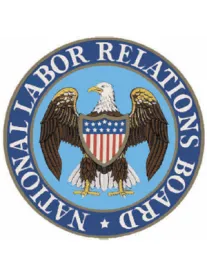On November 30, 2020, the NLRB Regional Director issued a Complaint against the Yotel Boston hotel and Unite Here Local 26, alleging the Hotel unlawfully recognized and provided improper assistance to the Union.
The Hotel and the Union were parties to a neutrality agreement. As is common in such agreements, the Hotel agreed to provide the Union with employee contact information and access to non-public parts of the property. The hotel allegedly also went beyond maintaining silence with management publicly expressing support for the Union.
The Regional Director’s decision to issue the Complaint comes several months after NLRB General Counsel Peter Robb issued a potentially precedent-shifting Guidance Memorandum that seeks to apply closer scrutiny to neutrality agreements.
Changes to Evaluating Neutrality Agreements in GC Memorandum
In his September 2020 memorandum, General Counsel Robb proposed two key changes to current Board law.
First, the GC argues that employers should not be able to provide “more than ministerial aid” to unions during an organizing drive. This is the current standard that applies to employer conduct in the decertification context. Currently, the Board applies a “totality of the circumstances” analysis to determine if an employer has provided too much assistance in supporting a union organizing drive. The GC argued it is difficult to apply this multi-factor standard that lacks clear guidance as to what is lawful and yields inconsistent results.
Second, he seeks to overturn the Board’s decision Dana Corp., 356 NLRB 256 (2010), which held that neutrality agreements typically do not interfere with employee free choice and thus do not violate the NLRA. GC Robb advocated that the Board should also apply the “more than ministerial aid” standard to neutrality agreements.
GC Robb advocated using a bright-line test that would find a violation if, in a neutrality agreement:
(1) the parties negotiate terms and conditions of employment prior to the union attaining majority status;
(2) the parties agree to restrain employee access to Board processes and procedures; or
(3) the parties agree to any provision that is inconsistent with the purposes and policies of the Act, such as by impacting Section 7 rights by providing support of the union’s organizing activities, rather than neutrality.
It is the last point that goes after the neutrality agreements that are common in the hospitality and other industries. Specifically, GC Robb provided examples of neutrality-agreement provisions that would be prohibited under the “more than ministerial aid” analysis:
- Allowing non-employee union organizers access to employer facilities;
- Allowing union solicitation during working time;
- Providing a union with employee contact information; and
- Making certain statements of preference for a specific union.
First Case Heading to the Board
The Memorandum did not create new law, but rather it demonstrates the prosecutorial priorities of the NLRB General Counsel and, now, with the Yotel case we see that Regions are following the directive. This is a prime example of how Board law could ultimately be changed — from issuance of a Guidance Memorandum by the NLRB GC, through the issuance of a Complaint, and then through prosecution at the ALJ and then Board level.
Again, the state of the law has not changed and Dana Corp. has not been overturned with respect to the standard applied to neutrality agreements. But if the GC’s position is ultimately adopted by the Board — which likely will not occur until late 2021, at the earliest, and given the new administration coming in January, will greatly depend on the composition of the Board at the time — then the implications will be significant with respect to whether employers may decide to enter into neutrality agreements and if so, the terms of those agreements. Even prior to the adoption by the Board of the GC’s position, many employers and unions may decide to enter into far more vanilla neutrality agreements than they otherwise would have to avoid the uncertainty fostered by protracted litigation.
We will continue to monitor updates on these issues, and whether the standards advocated by the General Counsel become law.





 />i
/>i

